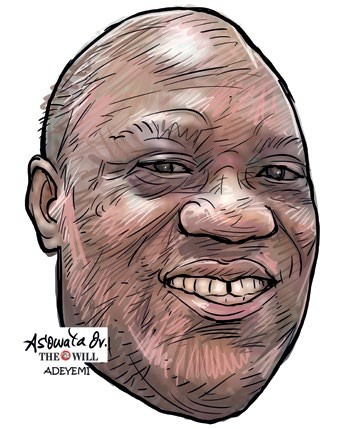August 27, (THEWILL) – Labour and human resource experts have knocked the National Bureau of Statistics (NBS) for the Labour Force report it published on Thursday, August 25, 2023, under its revised survey methodology.
The report entitled ‘Nigeria Labour Force Survey (NLFS)’ showed the country’s unemployment rate crashed from 33 percent in Q4 2020 to 5.3 percent and 4.1 percent in Q4 2022 and Q1 2023 respectively.
The NBS stressed that the figures emanated from the International Labour Organisation (ILO) “global standard” which it adopted against the “old methodology” it had put aside.

“The National Bureau of Statistics (NBS) has enhanced its methodology of collecting labour market data through the Nigeria Labour Force Survey (NLFS) in line with International Labour Organisation (ILO) guidelines.
“The data collection for the revised NLFS is based on a sample of 35,520 households nationwide.
“It is conducted continuously throughout the year, with national-level results produced quarterly and state-level results at the end of a full year,” the NBS said.
The statistical bureau further stated, “The last labour force report published was amidst COVID-19 pandemic for the period of Q4 2020, which reported a headline unemployment rate of 33.3% and an underemployment rate of 22.8%.
“As part of its routine methodological review and enhancement processes, NBS commenced work in 2021 with the World Bank and the International Labour Organisation (ILO) to update the methodology and processes for conducting the NLFS, which culminated in the results being presented in this report”

The highlights of the new methodology include the adoption of the working age population of persons aged 15 – 64 years under the old methodology; now changed to persons aged 15 years and above.
Under the old methodology, Employment covered “All those of working age population who were engaged in any activity that produce goods or provide services for a minimum of 20 hours in the reference period.”
This has been revised to mean “All those of working age population who during the reference period were engaged in any activity to produce goods or provide services for pay or profit.”
The old methodology classified ‘Underemployed’ as a person that Worked between 20 and 39 hours in a week. Under the new procedure, this refers to those who “Worked less than 40 hours in a week but willing and available for more hours of work.”
One of the key concepts discussed in the report is “Employed, at work”, which refers to “Individuals who are working for pay or profit and who worked for at least one hour in the last 7 days.”
The report further stated, “Nigeria’s unemployment rate is comparable to other countries in the West African region. Applying the definition of Unemployment outlined above, Nigeria’s unemployment rate was 5.3 per cent in Q4 2022 and 4.1 per cent in Q1 2023.
“This is in line with methodology of other countries in the region; the average modelled ILO unemployment rate estimate for the Western and Central Africa region for 2022 was 4.7 per cent.”
It continued, “To count as employed, an individual must have worked for at least one hour in the previous seven days – making them employed at work – or they must typically work for pay or profit, even if they did not do so in the previous seven days – making them employed, but temporarily absent. This approach follows the ILO standard.”
Reacting to the report, the CEO, Centre for the Promotion of Private Enterprises, Dr Muda Yusuf, said the report cannot be adopted in our situation.
“It is difficult to accept the recently released unemployment report by NBS. The methodology needs to be reviewed to reflect our realities. Four percent unemployment rate in this part of the world is as good as full employment.” Yusuf said.
An economist and sustainability expert, Marcel Okeke, described the report as a deceit, adding that the data amounts to a falsehood.
A human resource expert, Chuks Ibe, urged the NBS to revisit the report by adopting a “realistic” methodology that will reflect the reality on ground and save policy makers the trouble of groping in the dark. “We are all in this country. What sectors produced the employment opportunities that led to the 87.7 percent improvement in the unemployment situation between 2022 and now?” he asked.
An entrepreneurship expert, Prof. Charles Ogbulogo said, “We appear to toy with many things, including those that operate on empirical parameters. “We would expect a deep analytical framework to come up with even baseline data. Without a clear-cut procedure, it will be difficult to separate politics from fundamental economic realities.”
Speaking on a national television programme, Prof Okey Ikechukwu, Senior Fellow, Nnamdi Azikiwe University, Awka, advised the NBS to revisit the new methodology and find a problem-solving system that would make their job meaningful, adding that the “exercise is work in progress.”
About the Author
Sam Diala is a Bloomberg Certified Financial Journalist with over a decade of experience in reporting Business and Economy. He is Business Editor at THEWILL Newspaper, and believes that work, not wishes, creates wealth.




